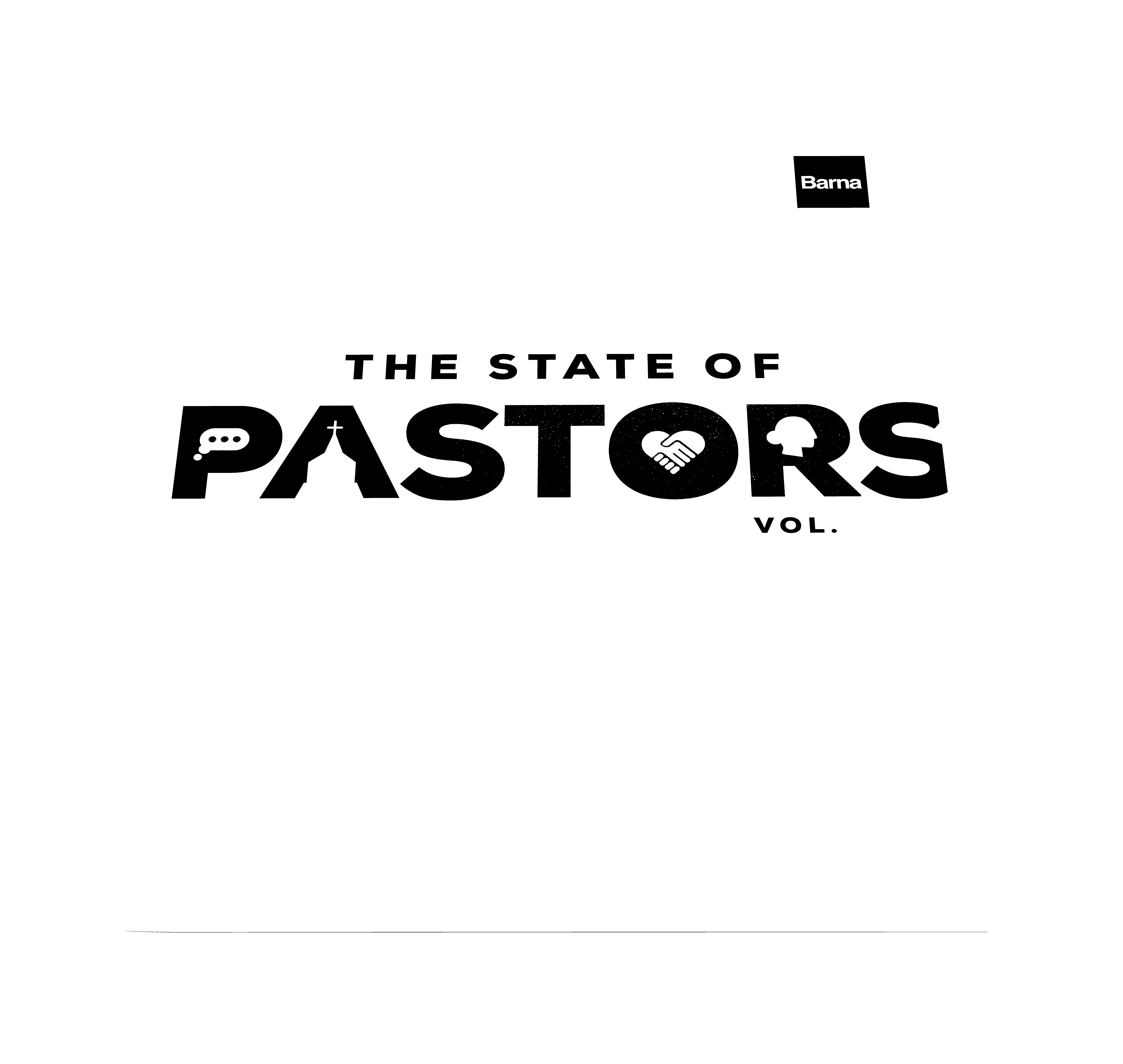For good reason, the “obesity epidemic” gets a lot of press these days. Whether it’s Michelle Obama’s initiatives to curb childhood obesity—one in three American children is overweight or obese—or recent criticisms lobbed by Congress at Dr. Oz for his promotion of “miracle cures” for obesity, there is no shortage of media coverage sounding the alarm about America’s nutritional emergency.
Your Leadership Toolkit
Strengthen your message, train your team and grow your church with cultural insights and practical resources, all in one place.
But what do Americans themselves say about what they eat?
The short answer? Too much.
Nearly half of Americans are concerned they eat too much (47%). With growing knowledge about food and its effects on health, and the availability of so many online resources and diet apps, it comes as no surprise that younger adults are more concerned about how much they eat, and what they eat, than older adults. Millennials—born between 1984 and 2002—are the generation most likely to say they are very or somewhat concerned about how much they eat (57%). In contrast, far fewer Elders—born in 1945 or earlier—express concern about eating too much (30%). Gen-Xers (49%) and Boomers (44%) fall between these extremes.
This pattern, in which concern about eating habits is greatest among young adults, emerges on a number of food-related topics studied in a new Barna study among Americans 18 and older. Overall, young adults are twice as likely as Elders to express concern about their eating habits.
There is a similar contrast between the levels of concern expressed by practicing Christians (55%) and by Americans who adhere to a faith other than Christianity (42%) or to no faith at all (41%). Those who attended church within the past month (56%) also tend to be more concerned about eating too much than marginally churched (46%) and unchurched (40%) adults.
Too Unhealthy and Too Fast
Beyond the amount of food they consume, what concerns Americans most about their eating habits?
The past decade has seen an explosion of healthier alternatives (depending on what you order!) to traditional fast food, such as Chipotle, Corner Bakery and Panera Bread. National demand continues to grow for healthier dining-out options, as well as for easier access to more organic foods.
Despite the availability of healthier choices, however, half of all Americans say they are concerned they eat too much unhealthy food (51%) and one-third say they eat too much fast food (37%). Again, Millennials are much more likely to express concern about unhealthy eating and fast food consumption than Gen-Xers, Boomers and Elders.
Perhaps thanks to the popularity of nutrition and fitness regimes like Weigh Down Workshop and Rick Warren’s Daniel Plan, practicing Christians (53%) express more worry about unhealthy food than Americans who adhere to non-Christian faiths (40%). Similarly, more practicing Christians (15%) are very concerned about eating too much fast food compared to Americans of other (8%) or no faith (9%).
The well-documented “grocery gap” in America’s cities may be partially at fault when it comes to the high levels of concern about unhealthy eating among black (62%) and Hispanic (58%) adults, compared to a lower percentage of whites (49%). And the high concentration of fast food restaurants in many urban neighborhoods likely affects the high number of Hispanic (60%) and black (46%) Americans who say they are worried about too much fast food (vs. 30% of whites).
Your Leadership Toolkit
Strengthen your message, train your team and grow your church with cultural insights and practical resources, all in one place.
Not Enough Fresh, Regular Home Cooking
Kids have a reputation for hating veggies, but according to a majority of Americans, vegetables and fruit are not very popular among adults, either: Nearly two-thirds of adults (63%) report they are concerned about not eating enough fresh produce. Once more, generational and ethnic differences follow the established pattern. Millennials (29%) are more than seven times more likely than Elders (4%) to say they are very concerned about their low level of fruit and vegetable consumption. The percentage of Hispanics (32%) who express this concern is nearly double the proportion of whites (18%).
While increasing numbers of men are comfortable whipping something up in the kitchen, cooking duties still more commonly fall on women—and according to Barna’s FRAMES research, seven out of ten women say “I have too much stress in my life.” It’s a challenge for busy, stressed-out women and men to regularly cook at home on a predictable schedule, and dealing with this challenge impacts Americans’ views of their eating habits.
In this respect, two out of five adults say they are concerned they do not eat enough homemade food (42%), and one-third say they worry about unpredictable mealtimes (37%). These concerns are most common among Millennials and non-white Americans.
Food Guilt and Barriers to Good Eating
Guilt after eating is one of the symptoms of an eating disorder, but many Americans who don’t suffer from a clinical disorder say they sometimes feel food-related guilt. More than half of U.S. adults (55%) say they occasionally, regularly or constantly feel guilty about their eating habits. Guilt is more common among Millennials (62%) and Gen-Xers (60%) than among Boomers (52%) and Elders (36%). Perhaps unsurprisingly, it is also more prevalent among women (61%) than men (49%).
Compared to adherents to non-Christian faiths (47%), more practicing Christians (63%) report feelings of food guilt. And there may be something to the notion of “Catholic guilt,” since even more practicing Catholics—65% of them—say they feel guilt related to eating.
Among Americans who feel food guilt at least occasionally are a variety of factors that stand in the way of their ideal eating habits. Gen-Xers (45%) and Millennials (43%) are more likely than average (35%) to say that busyness is a big factor. This makes sense, given that many in these age segments are in the thick of career development and raising children, two pursuits that demand extraordinary investments of time and energy.
Millennials (36%) and women (31%) are more likely than average (24%) to say they have a hard time eating their ideal diet because other family members don’t like it.
According to some studies, eating healthy food costs more than eating unhealthy food: $1.50 more per day per person, or more than $2,000 per year for a family of four. It’s no surprise, then, that the cost of healthier eating is a prohibitive factor for many population segments (52% among all adults). It is unexpected, however, that cost is less a factor for Elders (36%), given that more than 23 million Americans over age 60 qualify as economically insecure.)
As for other barriers to healthy nutrition, those in the Elder generation are also more likely than average to cite the difficulty of changing lifelong eating habits and to mention a sheer love of unhealthier food.
Comment on this research and follow our work:
Twitter: @barnagroup | @davidkinnaman | @roxycomposed
Facebook: Barna Group
Your Leadership Toolkit
Strengthen your message, train your team and grow your church with cultural insights and practical resources, all in one place.
About the Research
The research included in this report is the result of a nationwide online study conducted February 25 to March 3, 2014. The survey included 1,026 adults 18 and over. The maximum sampling error for the study is plus or minus 3.1 percentage points at the 95% confidence level. Minimal statistical weighting was used to calibrate the sample to known population percentages in relation to demographic variables.
The online study is derived from a probability panel, which means that respondents are recruited for inclusion in the research based on physical mailing addresses, not an opt-in online panel. Those randomly selected households without Internet access are provided an Internet-enabled device to complete surveys.
People are identified as having a “practicing” faith if they have attended a church service in the past month and say their religious faith is very important in their life.
“Churched” adults have attended a service, other than a special event such as a wedding or funeral, within the past month. “Marginally churched” Americans have not attended within the past month, but have done so within the past six months. The “unchurched” have not been to a service within the past six months.
Millennials (or Mosaics) are the generation born between 1984 and 2002; Gen-Xers (or Busters), between 1965 and 1983; Boomers, between 1946 and 1964; and Elders, in 1945 or earlier.
About Barna
Since 1984, Barna Group has conducted more than two million interviews over the course of thousands of studies and has become a go-to source for insights about faith, culture, leadership, vocation and generations. Barna is a private, non-partisan, for-profit organization.
Get Barna in Your Inbox
Subscribe to Barna’s free newsletters for the latest data and insights to navigate today’s most complex issues.




